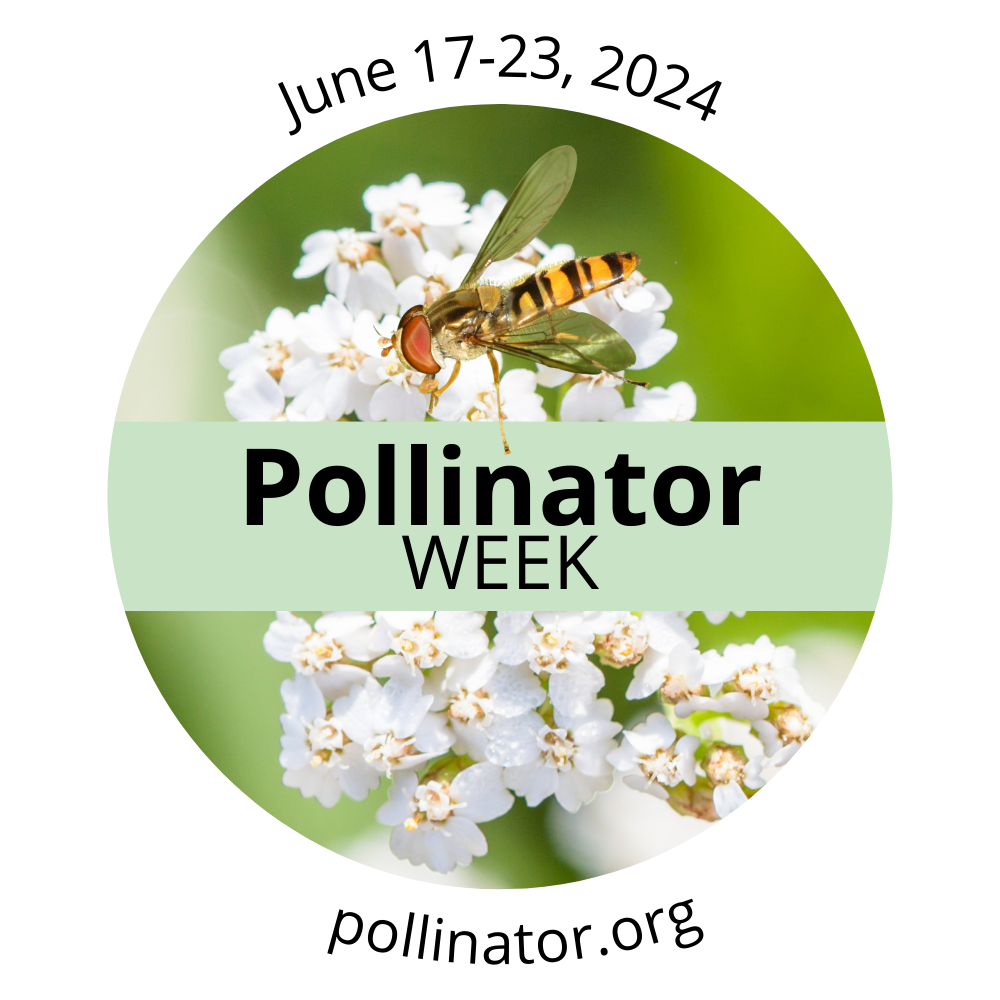
This year for Pollinator Week (6/17 – 6/23) we’re doing a 7-part series about native pollinators on Edisto Island!
First things first, what’s a pollinator? It’s simply an animal that moves pollen from one flowering plant to another. Most often this is a flying insect but birds, bats, and ants will also pollinate. We have 5 main groups of insects that serve as pollinators: Bees, Wasps, Flies, Beetles, and Butterflies.
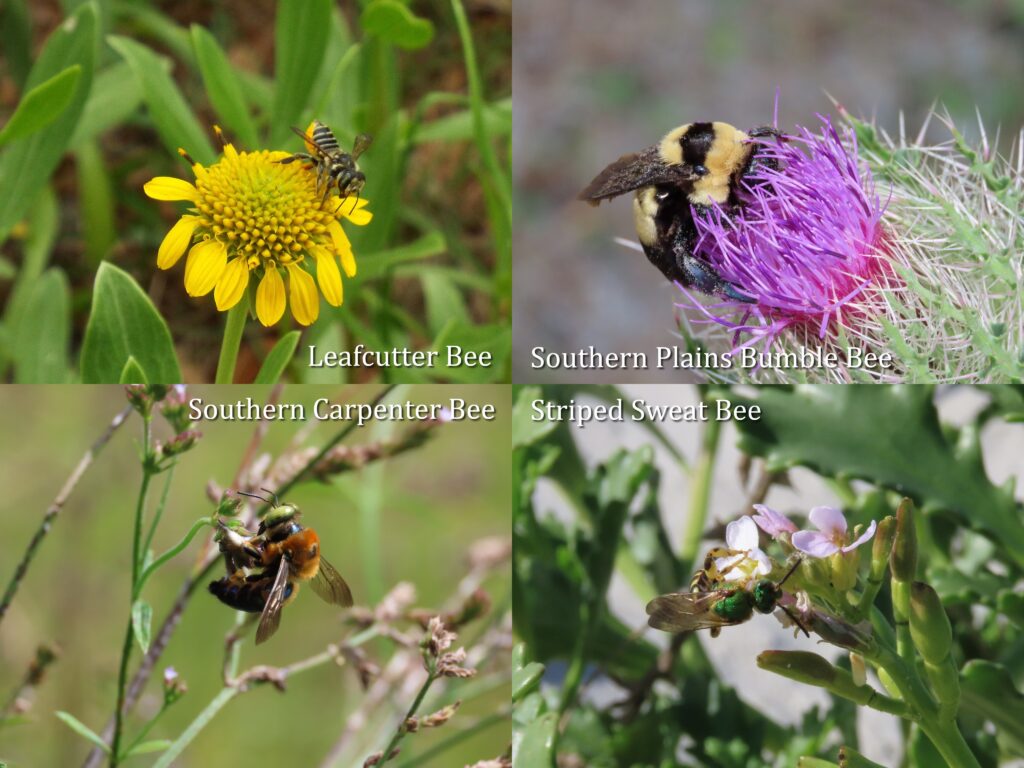
Bees are the powerhouses of the pollinator world. They do the lion’s share of pollination. Adults eat mainly nectar and feed their larvae pollen and nectar. Our native bees, especially Bumble Bees, do the bulk of the pollination in natural areas and small gardens. Honeybees, an exotic domesticated species, pollinate agricultural fields and orchards.
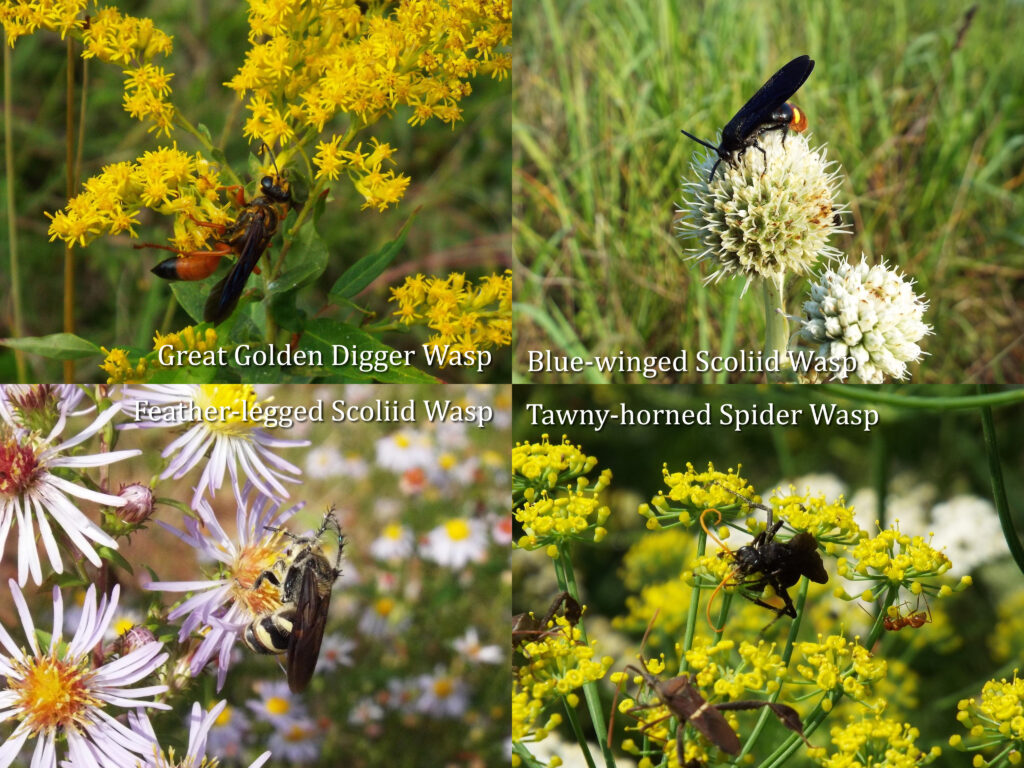
Wasps are anti-heroes among pollinators. Adult wasps eat nectar and do a lot of pollination in the process. They also hunt caterpillars, spiders, and other insects to feed their young. This helps control insect populations and stabilizes an ecosystem.
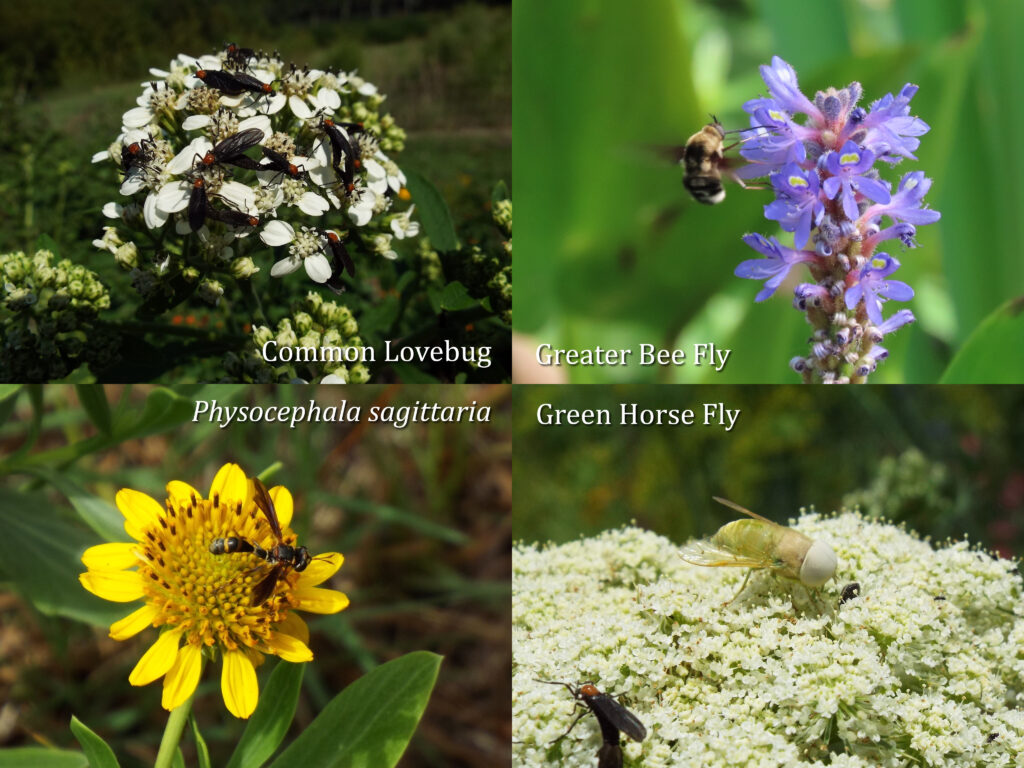
Flies are the unsung heroes of the pollinators. They do a ton of pollination on smaller flowers that are not often visited by other pollinators. There are also many plants with extremely specialized pollination tailored to just one species of fly. Another group, the Flower Flies, have carnivorous larvae that feed on pests that plague pollinator plants.
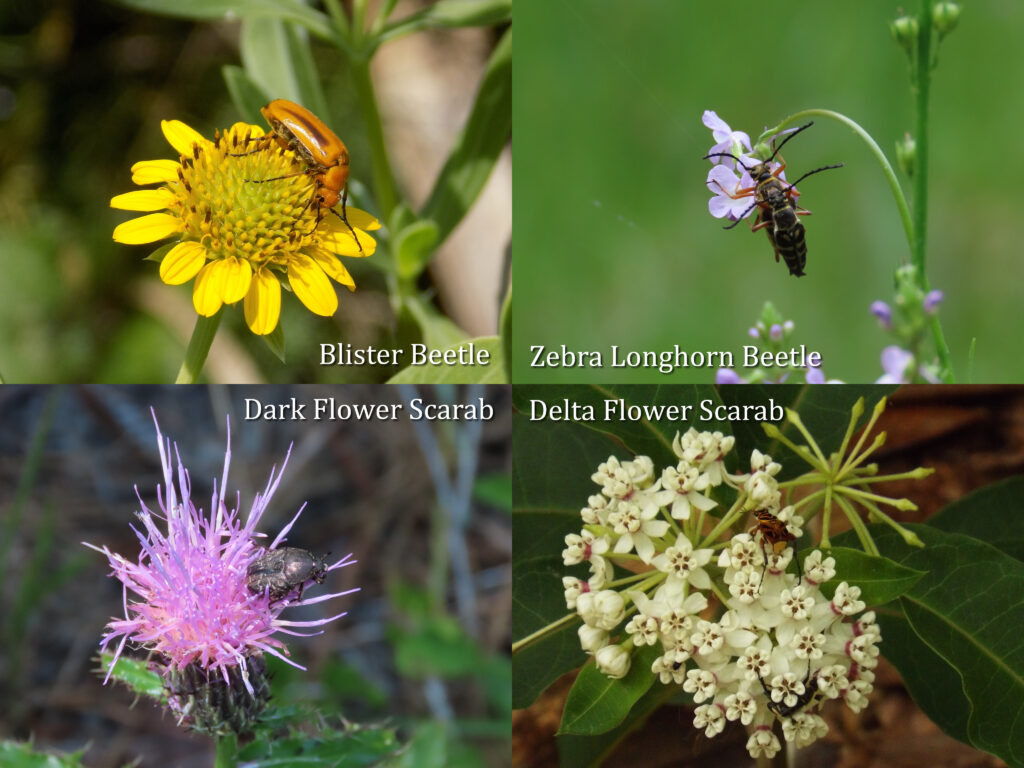
Beetles are our pollinator old guard. The original pioneers now stuck in their ways. Beetles are sedentary and uncoordinated, making them inefficient pollinators. However, some plants take advantage of these bumbling beetles to douse them with pollen and to make unwitting pollinators. Butterflies are the celebrities of our pollinators. They’re good looking and they soak up a lot of energy, resources, and attention, but don’t do all that much.
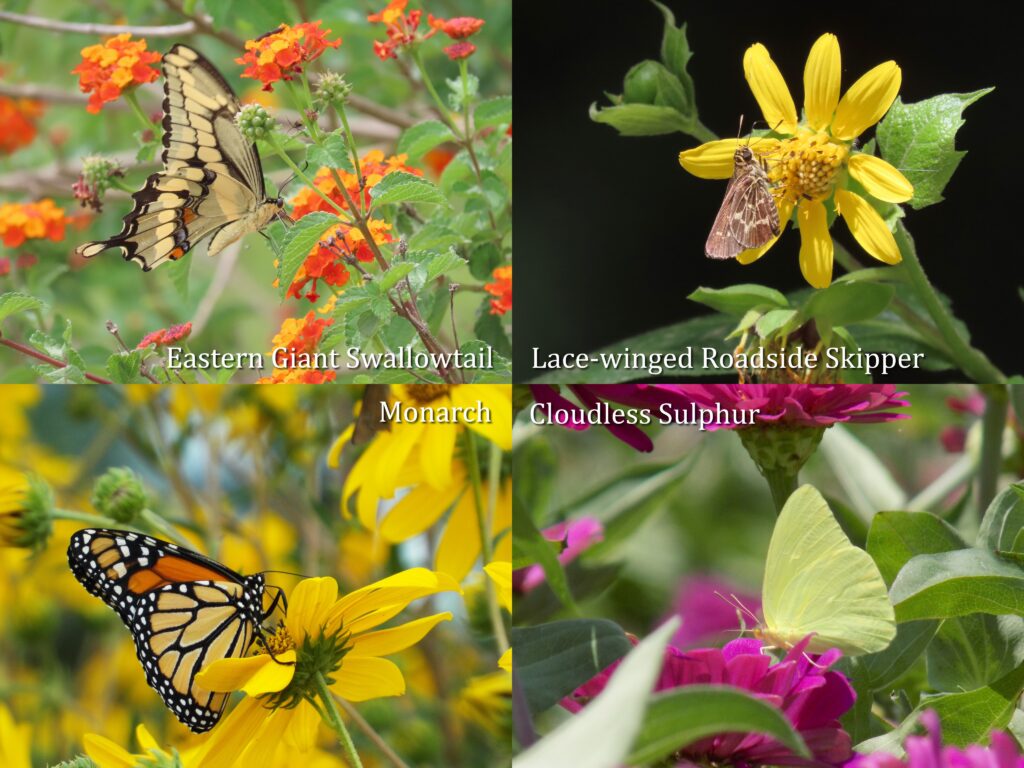
Butterflies are very well adapted to drink nectar and not get pollen on them. Yet, certain plants make use of butterflies as preferred pollinators. Further, butterfly larvae feed on plants, this helps control plant populations and keeps any one plant species from dominating an ecosystem.